 SDL Sopwith
SDL Sopwith
[
Play in browser |
Download |
Screenshots |
Github Page |
Discord |
History |
Links
]
History of Sopwith part 3: Sopwith escapes the lab
[ Introduction | Imaginet | Sopwith escapes | DOS versions | On the Internet ]
Intended as a trade-show demo, it’s unclear how Sopwith escaped to the general public. David L. Clark didn’t even discover until around 2000 that it had “gotten out”. Little did he know, Sopwith had been circulating for years in collections of early games for the IBM PC. Only a couple of years after the first version was released, ads were appearing in magazines like PC Magazine advertising Sopwith for sale as part of collections of games for the IBM PC:
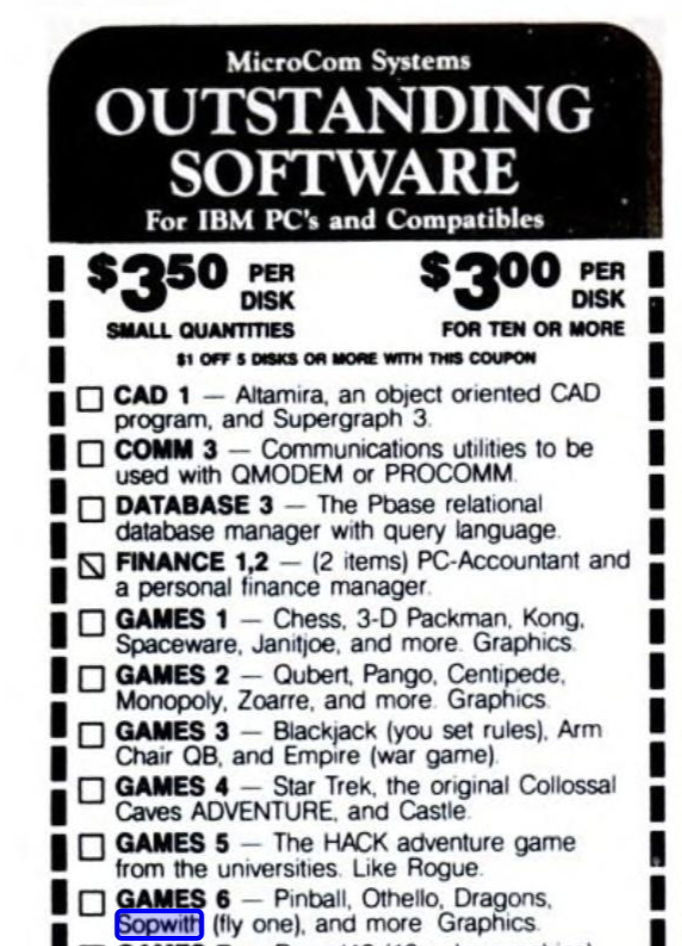
Ad from PC Magazine’s August 1986
edition
The Programmer’s Guild included Sopwith in their “Portable Pastime Package”, the ad for which claimed for some reason that Sopwith’s gameplay involved “blowing up schools” in “quaint Bavarian villages”:
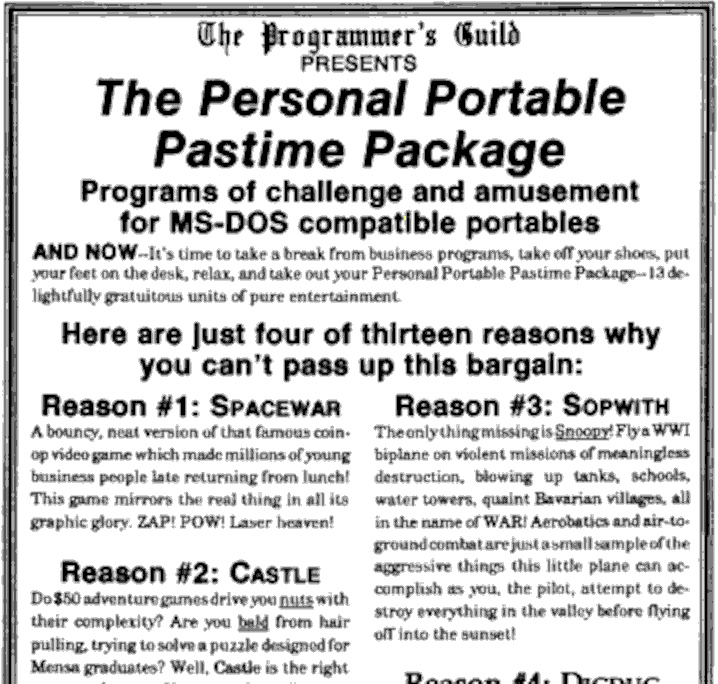
And it wasn’t just in North America. Distributors in Europe in countries like Germany and Italy were also selling copies:

Needless to say, BMB were not getting any money out of these sales and most of these distributors were passing off Sopwith as “public domain software”. Keypunch Software took things a step further by hacking the game to rename it “Red Baron” and selling it along with several other aviation-themed games as part of its “Strike Force” collection. The BMB name was stripped from the title screen and replaced by the words “PUBLIC DOMAIN”.
Reviews
Because it never had any official release as a commercial game, there weren’t a lot of contemporary reviews of Sopwith. Nevertheless it did get a bit of attention. Perhaps most notably of all was Sopwith’s appearance in the 1990 book “Free and user supported software for the IBM PC” where it was described as a “very enjoyable game which offers solid entertainment” and received an overall evaluation of “excellent”:
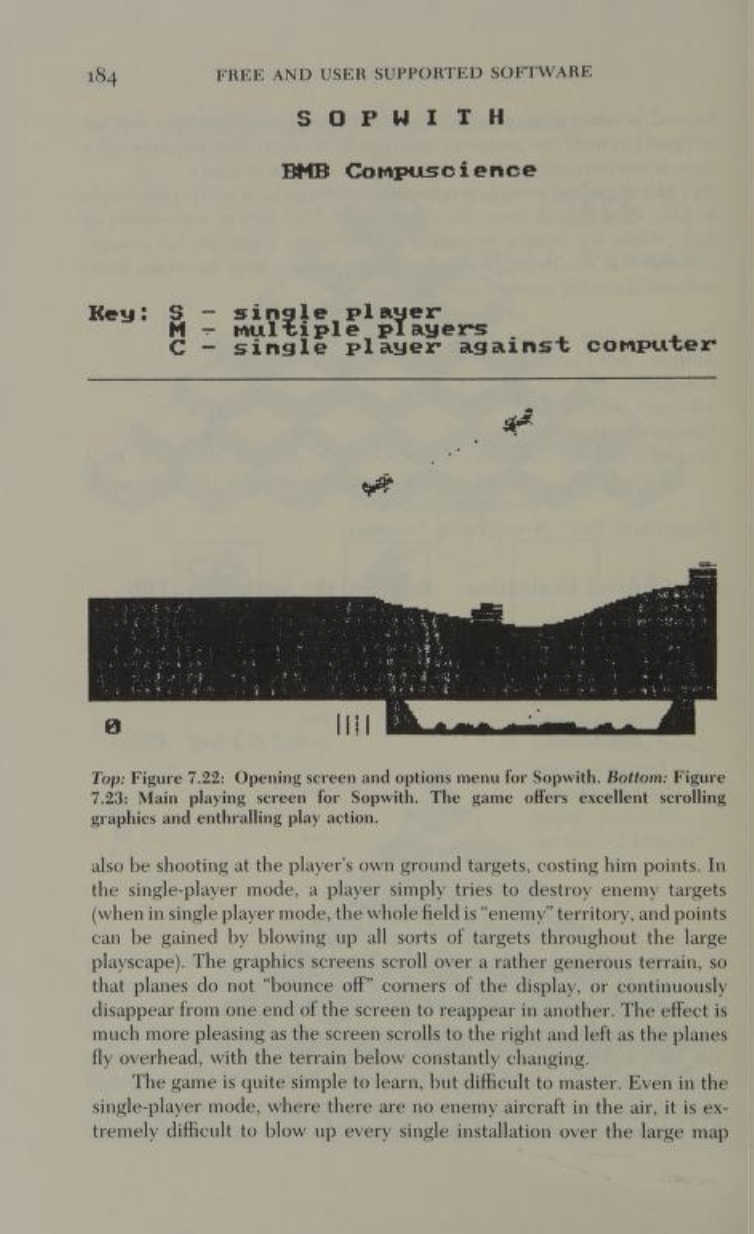
In 1988 Bob Liddil reviewed Sopwith in Pico Magazine as part of an article on the previously-mentioned Personal Pastime Package:
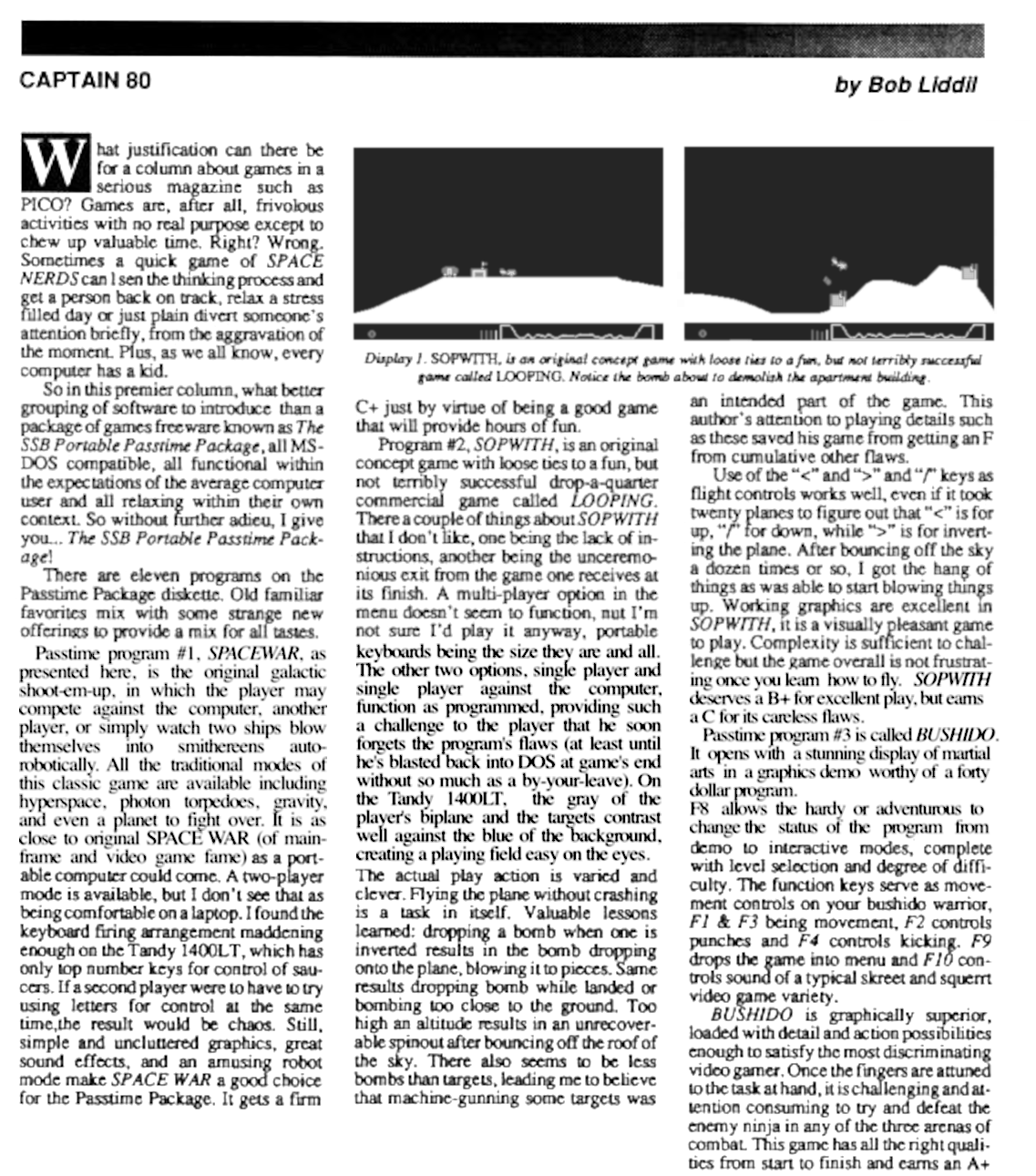
Article by Bob Liddil discussing Sopwith (partially reconstructed)
In fact, Bob loved Sopwith’s gameplay so much that he wrote about it again in his column for Portable 100 magazine the following year:
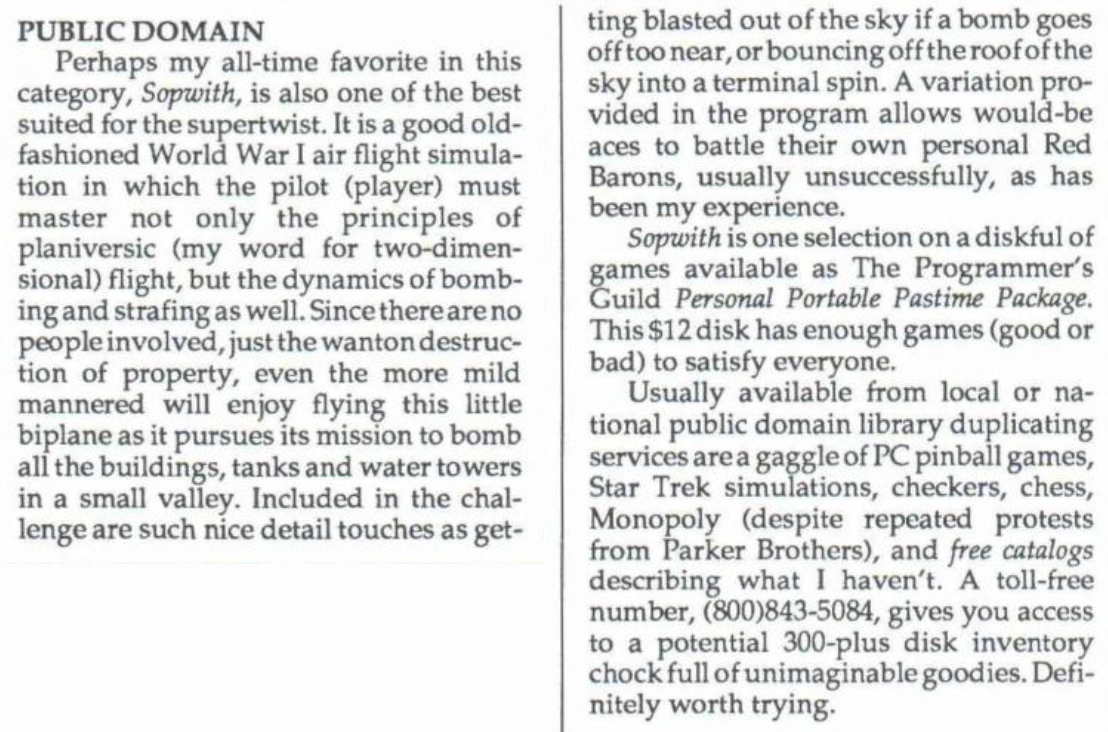
But wait! A quick search reveals that Bob was himself the founder of The Programmer’s Guild. What a coincidence!
Next: Original DOS versions
